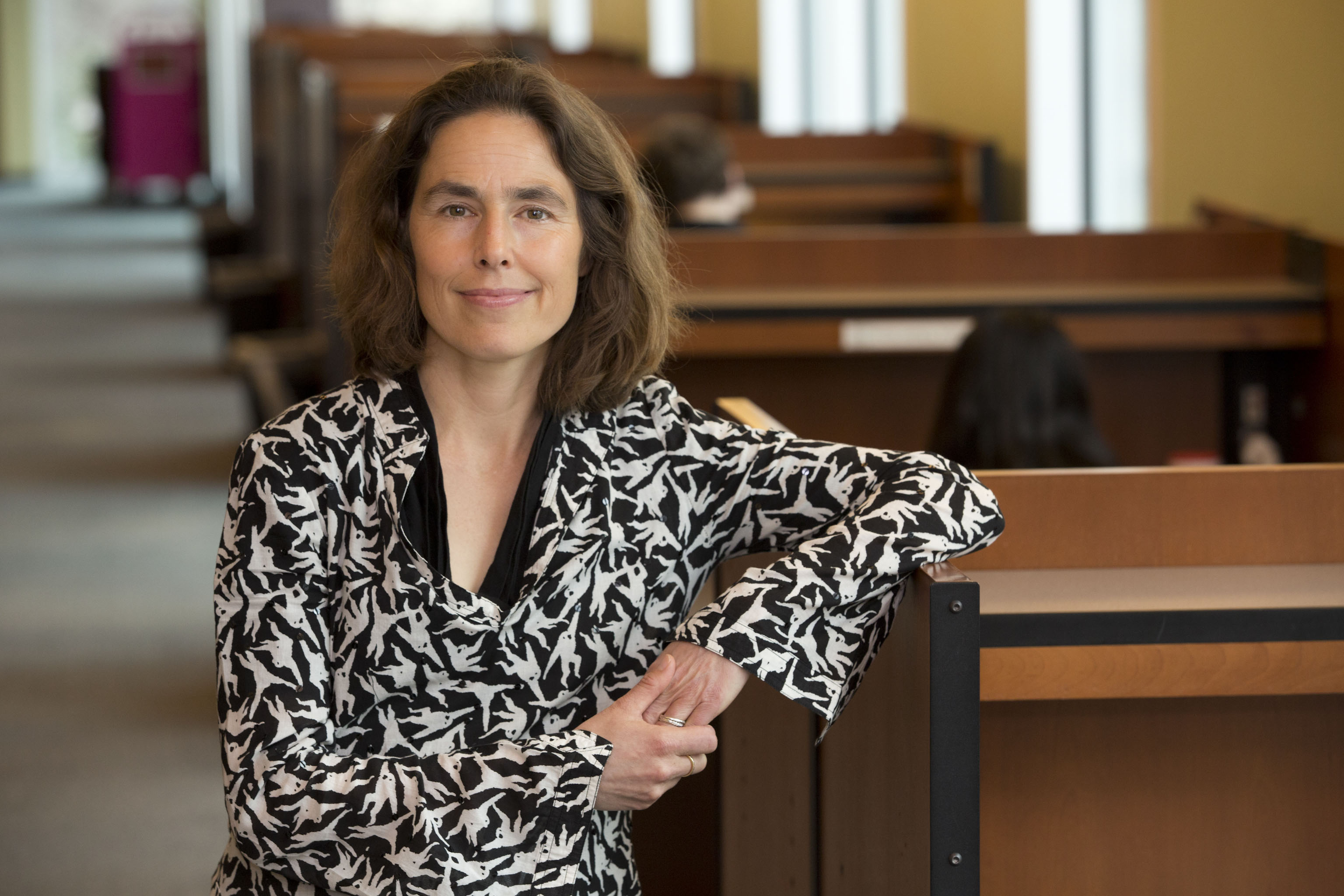Joining the Maryland Carey Law faculty this year is Professor Liza Vertinsky, who comes from Emory University School of Law where she taught from 2007 to 2022.
Vertinsky is a nationally recognized intellectual property and health lawyer and economist whose research is located at the intersection of law, economics, and the regulation of health care markets and emerging technologies. Her research and teaching build upon her graduate training in law and economics, her time clerking for federal district and appellate courts, and her decade of experience as a practicing biotech and high-tech lawyer focusing on intellectual property transactions and technology transfer.
Vertinsky brings expertise in the regulation of emerging technologies, health care markets and health policy; biomedical innovation; global health; and intellectual property. She is also passionate about finding ways the law can be used to pursue economic and social justice. In her previous position, she was an Emory Global Health Institute Faculty Fellow and project leader of the Emory Global Health Law and Policy Project and worked with several student and community groups on issues of health justice.
“Professor Vertinsky is a superb teacher and a renowned scholar,” says Professor Deborah Eisenberg, Maryland Carey Law’s associate dean for academic affairs. “When she visited with us in fall 2021, she quickly became a valuable member of our law school community. We are thrilled that she is joining us full-time.”
Vertinsky earned her JD and PhD in economics from Harvard in 1997 after which she clerked for Judge Stanley Marcus, for the U.S. District Court in the Southern District of Florida and then for the Eleventh Circuit Court of Appeals. The Canada native’s doctoral research resulted in the book, A Law and Economics Approach to Criminal Gangs, exploring the economic structure of street gangs.
More recent works include, “Pharmaceutical (Re)capture” in the Yale Journal of Health Policy, Law & Ethics; “Public-Private Litigation for Health” in the Utah Law Review; “Genetic Paparazzi: Beyond Genetic Privacy” in the Ohio State Law Review; “The Problem with Relying on Profit-Driven Models to Produce Pandemic Drugs” in the Journal of Law and the Biosciences; and “Why Healthcare Companies Should (Be)come Benefit Corporations” in the Boston College Law Review.
As a visitor last year, Vertinsky taught first-year contracts and a popular seminar on corporate responsibility and social welfare. She will reprise those courses and looks forward to teaching a class she recently developed on regulating emerging technologies.
According to Vertinsky, she is thrilled to be joining the Maryland Carey Law community, citing the welcoming atmosphere and excellence in scholarship, clinical practice, and attention to students. “Maryland Carey Law gets the balance of the needs of students, the needs of faculty, and the needs of the community,” she says. “To survive and be a healthy and successful law school, you need to have that balance and that pursuit of excellence in all of these domains.”

